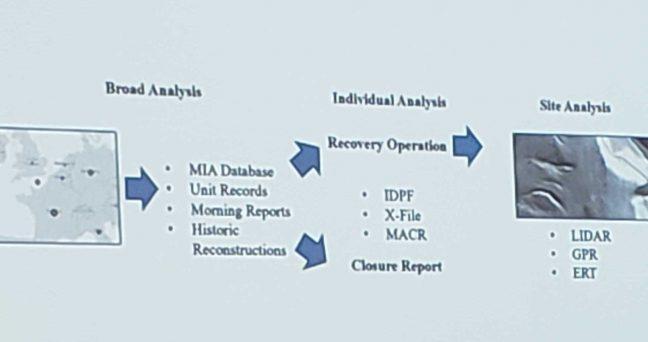State lawmakers seek to fund the University of Wisconsin’s project to find missing soldiers, with 88 lawmakers signing a bill.
Defense POW/MIA Accounting Agency recently tasked the UW Missing In Action Recovery and Identification Project to recover and identify the bodies of World War II U.S. Forces in the European Theater. The DPAA seeks to “provide the fullest possible accounting for our missing personnel to their families and the nation,” their website said.
According to their website, this project brings together four scholarly disciplines, including history, archaeology, forensic anthropology and genetic analysis. These areas work together to survey sites, exhume and identify remains. These teams are composed of students, researchers, student veterans, alumni and volunteers. The researchers specializing in archaeology and genetics have been working with the U.S. Department of Defense since 2013 to identify missing U.S. soldiers.
Charles Konsitzke, the project’s founder, told AP News 1,500 soldiers from Wisconsin have disappeared in action since World War II.
State Sens. Roger Roth, R-Appleton, and Dale Kooyenga, R-Brookfield, and state Reps. Ken Skowronski, R-Franklin, and Christine Sinicki, D-Milwaukee, are the lead authors on Senate Bill 446. This bill will provide $360,000 to the project over the next two fiscal years if passed.
State Rep. Jimmy Anderson, D-Fitchburg, said he is cosponsoring the bill because he feels a personal connection with the project’s mission. Anderson’s grandfather and father are veterans.
This project brings UW and the state together, along with many disciplines, to identify and tell stories of those who sacrificed for our country, Anderson said.
Senator Mark Miller, D-Monona, wrote in an email that he recognizes the importance of bringing back missing members of the military and this legislation “will provide additional resources to help make that happen.”
Torrey Tiedeman, the project’s communications manager, told AP News the nation owes the armed service members who died for this country and have not been brought home.
The project has identified three soldiers so far, all killed in France during World War II. The project cannot go find soldiers without an assignment from the DOD, Konsitzke told AP.
Funding from the state would allow the project freedom to search for more soldiers, Tiedeman said.
27 state senators and 61 representatives have signed onto SB 446 since its introduction Sept. 23.
“I am proud to vote for it,” Anderson said.


